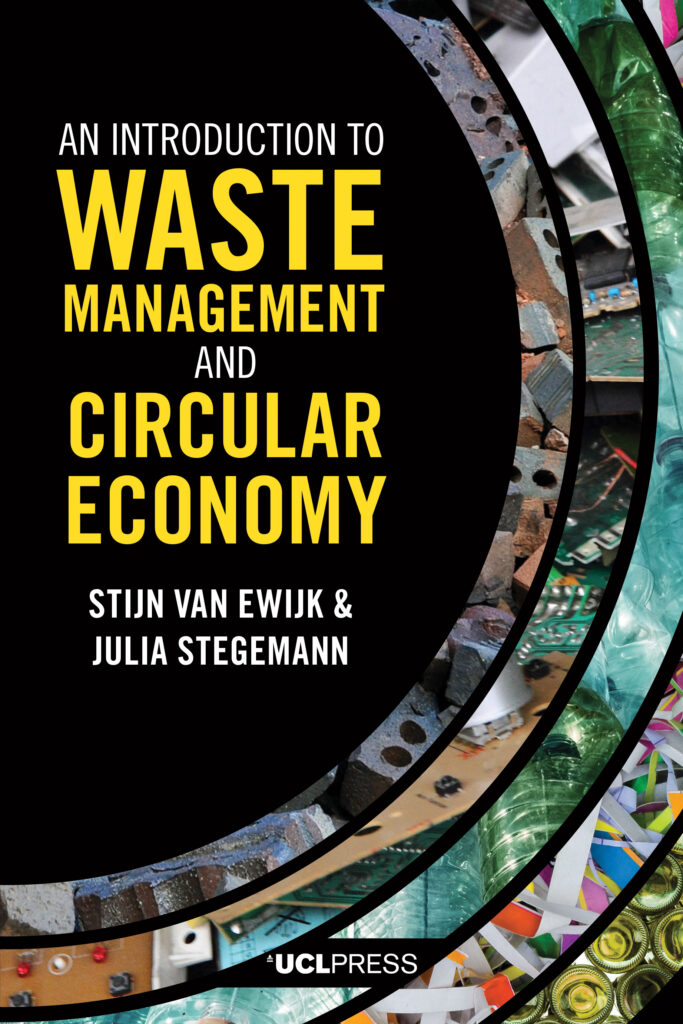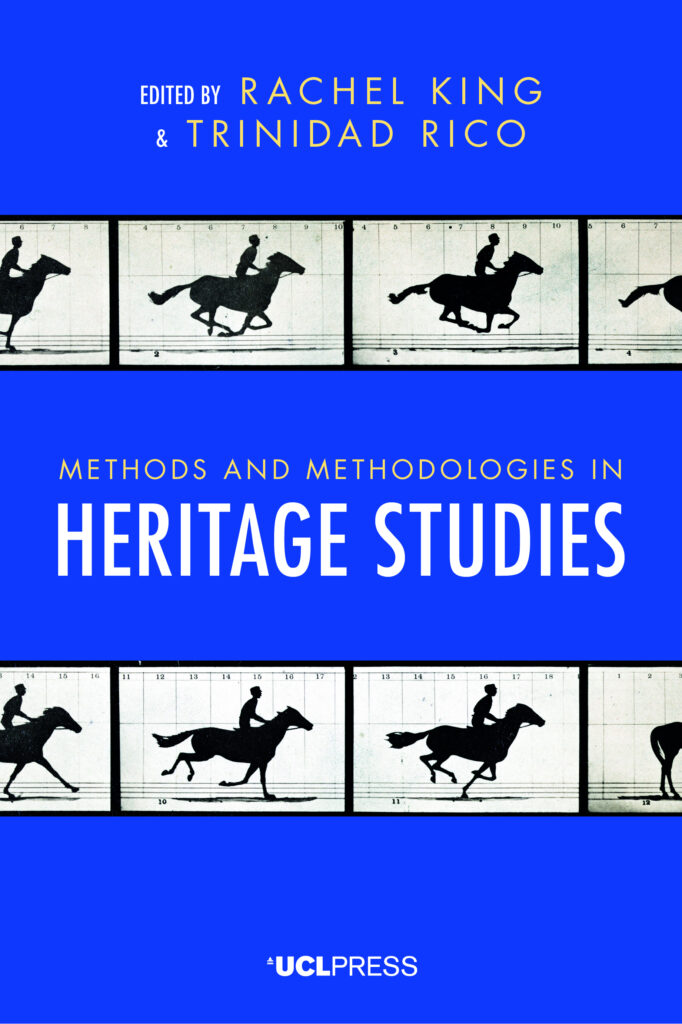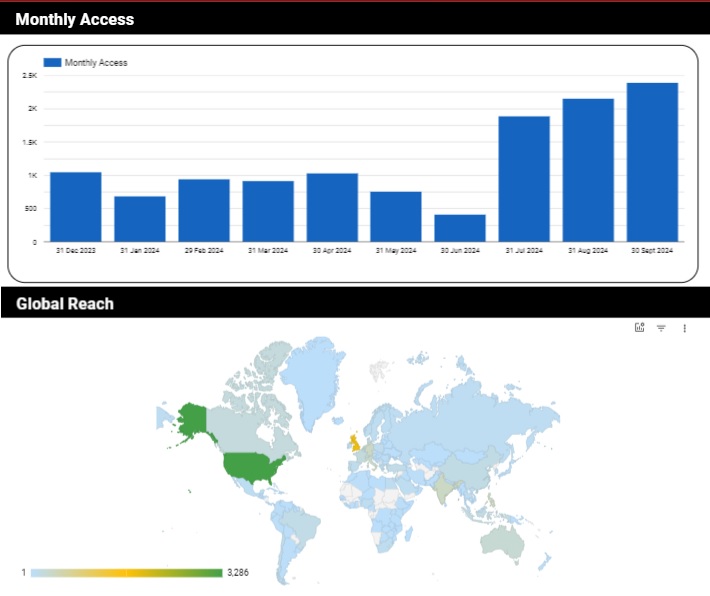OA Textbooks: UCL Press Perspective
Posted on 24th October, 2024

In celebration of open access week, Dhara Snowden, UCL Press Textbook Programme Manager, shares her insights on the growing significance of open access textbooks, their role in the broader landscape of open access publishing and the future of the UCL Press textbook programme.
UCL Press is the UK’s first, and largest, fully open access university press. We have been publishing books and journals for almost 10-years, across a variety of subjects and formats. In 2021, the press established a new programme of publishing, focusing on OA textbooks. I joined the press at this time and over the past 3 years, I’ve been responsible for managing our progress in this endeavour. For this year’s OA week, I wanted to share some of our thinking and planning around this activity and offer some musings about OA textbook publishing in general and what the future holds.
What are open access textbooks?
Firstly, it’s useful to clarify what we mean by ‘textbooks’. During my conversations with academics across faculties, I’ve come to realise that this term has a different meaning in different contexts and across different levels of study. In the broadest sense, a textbook is a book that contains the materials to support the delivery of a course or module. Textbooks can provide a wide-view survey of a field or subject to be “adopted” as the main guide for study, or be part of a reading list of texts, often with a mixture of chapters, and other sources (articles etc). Although traditionally published in print, there has been increasing demand for digital versions of commercial textbooks, which can be purchased by individuals and licenced to institutions for use by multiple users.
Open access publishing refers to the practice of making scholarly content and materials freely available online, removing subscription or purchase barriers. In the context of textbooks, this means that students and educators can access high-quality educational resources without incurring significant costs. OA textbooks are typically published under a creative commons (CC) licence which allows for redistribution, adaptation, and modification, promoting a collaborative and inclusive educational environment.
The creation and uptake of OA textbooks has seen a sharp increase in recent years, particularly in the USA and UK, with mature non-profit-funded publishers like OpenStax, collaboratively funded one-off projects like CORE Econ, and the development of platforms like Pressbooks. The Open Textbook Library, supported by Open Education Network, indexes published open textbooks and currently reports a total of 1,542 entries.
Why do we create them?
The UCL Press textbook programme was set up in direct response to issues around pricing for institutional access to essential e-textbooks, which were exacerbated during the covid-19 pandemic. The current ecosystem presents an unfavourable and often unstable and unsustainable financial model for institutional libraries, which has been well documented by the eBooks SOS campaign, can calls attention to the lack of regulation in pricing by commercial publishers.
An article entitled, Perspectives on e-books and digital textbooks and the way ahead published by Insights in 2022, claims that ‘combined spend on book across nationally negotiated library purchasing frameworks increased from £55 million in 2019/20 to £73 million in 202/21, with e-textbook provision increasing by 281% to £25.1 million during that time’.
In addition to issues around affordability and sustained access, the Insights article outlines that post-pandemic, “shifts in teaching practice are accelerating demand for features that enhance blended learning”, with more flexibility and adaptability in resources being required, which isn’t being delivered by traditional academic publishing.
UCL Press’s aims to disrupt the current academic publishing ecosystem, offering authors and readers an alternative to the commercial model. This connects the theme for OA Week 2024, which calls for community over commercialisation. Bringing publishing back to the hands of academy, we can provide sustainable and high-quality textbooks to facilitate hybrid teaching and remove barriers to access for our content thereby reaching the widest possible audience and increasing chances to impact in scholarly communities.
How do we create them?
The UCL Press textbook programme commissions and publishes textbooks for undergraduate and postgraduate levels of study, across a wide range of subjects and topics. Each new proposal (and final manuscript) undergoes a rigorous peer-review process to ensure our texts include high-quality and relevant content.
Our approach is to collaborate with lecturers to create resources that provide high-quality guidance for students through their studies. We take a personal and bespoke approach to each new textbook. As our main output is digital and open access, we assess the needs of the student and subject matter and offer greater flexibility for our authors to create textbooks that correspond to those factors, without rigid templates or a one-size-fits-all mentality.
We have published 2 new textbooks to date, the first entitled, An Introduction to Waste Management and Circular Economy, published in December 2023. This textbook is based on a module taught at UCL but also has relevance for global courses on environmental engineering, resource efficiency, bioenergy and waste-to-energy technologies.

More recently, we published Methods and Methodologies in Heritage Studies, an edited collection that provides disciplinary debates, intellectual legacies and practical innovations that have led to understandings of heritage value today.

Combined, these 2 titles have received over 12,000 downloads, from 152 countries and territories since publication.

Our forthcoming titles include, A Guide to Performing Systematic Reviews of Health and Disease and Fundamentals of Dark Matter, both due to publish early next year.
What are the benefits of writing or using OA textbooks? Where’s the value?
There are many benefits to writing and using OA textbooks and the European Network of Open Education Librarians have created a toolkit to encourage use of OA materials and open education resources (OER). Some of the key points are listed below.
- Reaching a Global Audience: downloads and views from readers across the globe, particularly the global south.
- Cost-Effectiveness: One of the most significant advantages of OA textbooks is their cost-saving potential for both library and student. OA resources can alleviate this burden, allow to redistribution of saved funds and make education more accessible for all.
- Adaptability: open and CC licences enable reuse, modification and adaptation to make the content work best for teaching in aligned subjects.
- Showcase Teaching Excellence: Ability to platform a new approach or area of study and celebrate examples of teaching excellence.
- Encourage lifelong learning: Provide students with resources they can use and reference after their studies and into their careers.
- Accessibility and Inclusivity: Open access textbooks are available to anyone with an internet connection, supporting a diverse range of learners, including those in remote or under-resourced areas or not part of academic institutions, i.e. professionals and policy makers.
- Up-to-Date Content: Traditional textbooks can quickly become outdated. OA textbooks can be updated and revised more readily, ensuring that students have access to the most current information.
- Enhanced Collaboration: The open nature of these resources encourages collaboration among educators, fostering a community of shared knowledge and innovation.
To measure impact, we’re trying use both qualitative and quantitative measures. Our metrics help show the readership and reach of our books, all displayed on our Statistics dashboard, which includes a map of access. In addition, we are collecting testimonials and feedback from academics and students and trying to engage with the societal impact of our books (as discussed in a recent article in The Scholarly Kitchen) and interrogating our user analytics to understanding which communities are engaging with our content and how they are using it in their own work.
Value in this context is calculated both as cost-saving on commercial provision, but also, as value added to student experience, or showcasing teaching excellence to encourage enrolment in a particular course or providing a teaching and learning resource for a module that is underrepresented in commercial provision (i.e. with a smaller cohort/interdisciplinary topic/offers a less mainstream perspective).
What is the future?
The future of open access textbook publishing in the UK looks promising, with increasing institutional support and growing awareness among educators. As the demand for affordable and accessible educational resources continues to rise, the potential for OA textbooks to reshape higher education is significant.
Open access textbook publishing represents a vital shift in the academic landscape, providing a sustainable, equitable, and collaborative approach to education. As more institutions and publishers embrace this model, the hope is to create a future where quality educational resources are accessible to all, empowering students and educators alike.
Significant sea change in the status quo requires a long-term outlook and significant investment and commitment. If educators, students, and policymakers encourage discovery of the available open access resources and advocate for their adoption within institutions, there is potential to foster an educational environment that fully supports and values accessibility, collaboration, and innovation.
UCL Press will continue to develop its programme of OA textbooks and to keep up to date with our publications, please do sign up to our mailing list or take a look at our website.